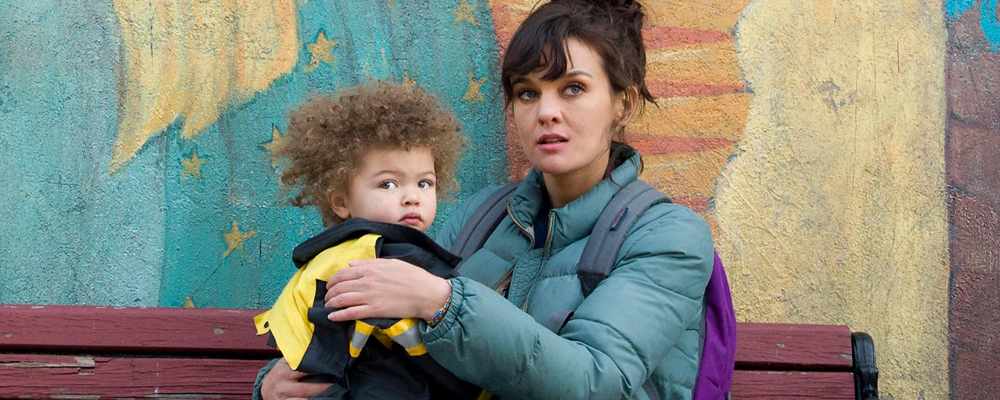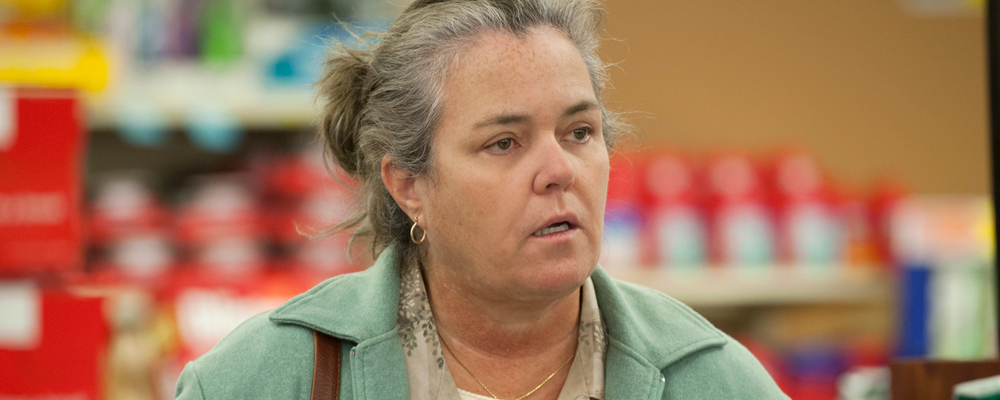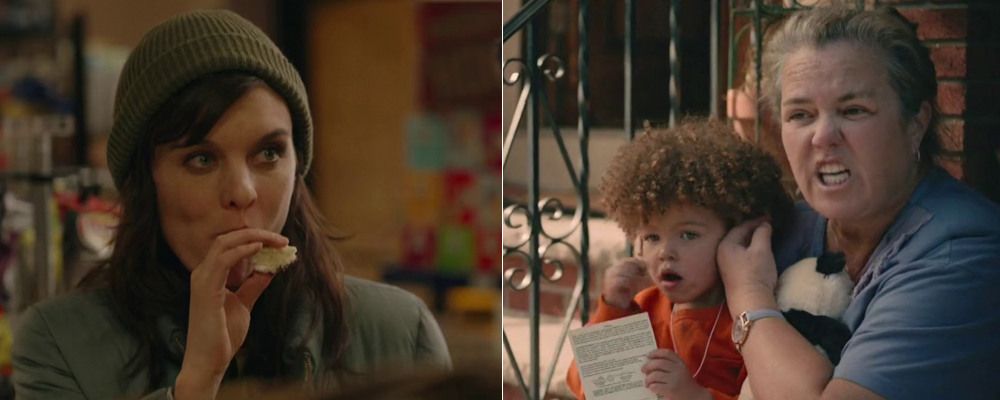‘SMILF’ Is a Humorous Take On The Perils of Single Motherhood
Alci Rengifo
Single motherhood is full of pathos and wise humor in “SMILF,” the new, energetic romp on Showtime starring its creator and writer, Frankie Shaw. Written with a brutally honest insight into the social habits of people, it’s also an engaging look at contemporary urban life. But more importantly, the show feels like a genuine attempt at telling stories from the point of view of a modern, working class woman. While the humor works, there’s an almost documentary-like authenticity to the show. Every scene feels like a real life being experienced.
Shaw stars as Bridgette Bird, a single mom in Boston trying to make it while harboring dreams of playing in the WNBA. She’s still quite young and attractive, yet there’s always a change in men’s perceptions the moment they find out she has a young son, a toddler named Larry. The pilot episode is a farcical take on the trials of being a single woman with a kid. Men approach Bridgette at the local basketball court and start flirting, then back off when they realize the crying baby nearby is hers. Her doctor encourages her to have sex with whoever she pleases. “It’s kind of hard for me to do that,” she replies with shy frustration. Life is tough but Bridgette isn’t alone. Her mother Tutu (Rosie O’Donnell) is around with a cranky but knowing attitude and Larry’s dad Rafi (Miguel Gomez) does do some co-parenting. Rafi does have his own views which differ at times with Bridgette’s, especially when it comes to religion and vaccines. Like many deadbeats he also gets judgmental with Bridgette over things out of her control. Income flows in from small gigs including tutoring the children of the uptight Ally (Connie Britton), who gasps at the explicit photos in biology textbooks, and small acting gigs in PSAs.
“SMILF” is the kind of television that feels like cynicism with a smile. We can’t help but laugh or shake our head at some of Bridgette’s trials or decisions because they feel so true to life itself. As progressive as we’ve become, society is still rife with sexism and superficial perceptions, and Bridgette faces it every day with an ever thicker skin. She buys pounds of comfort food when depressed, and bumps into old school mates who say insensitive nonsense like “you look homeless great…you’re a mom, that is unbelievable.” When she finds out Rafi is dating a blonde ditz named after Nelson Mandela (“It’s a reminder to give back”), she can’t help but masturbate to her online photos out of repressed frustration. She hesitantly invites a guy over for a hook up, but the scene is written and performed with a hilarious clumsiness true to life as opposed to the kind of bombastic fireworks of typical TV fare. Bridgette is more worried about making sure her body is still the same. In these moments the show veers from funny to touching, because it isn’t judgmental, just observant.
There are also moments of real drama, when tears flow out of life’s unforgiving roadblocks. The scenes between Bridgette and Larry are full of tenderness. It’s not cheesy, but sentimental. At times the humor takes on an acidic, but sharp approach. During a rehearsal for an infomercial on PTSD, the casting director asks Bridgette why she’s so good, and she answers that she was molested as a child, which can easily cause PTSD. Brutal, but with some truth, not all humor is meant to be comfortable. In another scene Bridgette is being examined at a women’s clinic as right-wing protesters hold anti-abortion signs outside. The look of the show is gritty, with a lot of hand held camerawork. This gives it a sense of intimacy and captures the kind of hectic, chaotic life Bridgette leads (like most of us).
A show like “SMILF” has to thrive on timing and performance. Shaw is wonderfully scrappy as Bridgette, playing her with a wounded shyness mixed with determination. Miguel Gomez never strikes a false note as Rafi and we never doubt him as a clueless loaf. Rose O’Donnell’s Tutu is all grump and aged toughness. It’s a nice return for O’Donnell to TV and hopefully the character is used more regularly as the series progresses.
“SMILF” might turn off some viewers due to its somewhat raw attitude. But sometimes rawness is necessary when you want honesty. Shaw has created a character that you feel could be your next door neighbor, or former classmate. It’s a show about a life being lived somewhere right now.
“SMILF” premieres Nov. 5 and airs Sundays at 10 p.m. on Showtime.





